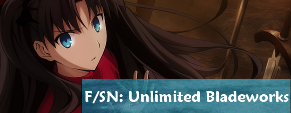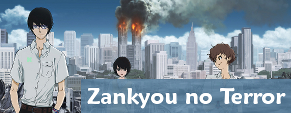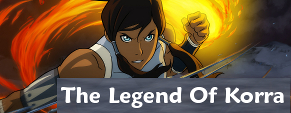Toshokan Sensou Review
Here it is, the end of Toshokan Sensou.
Perhaps I am the only one who finds this show slightly weird and illogical but looking past the book keeping war and at the anime for its fundamental attributes; comedy, action and romance, I have to say that I was entertained.
Summary
Basically it is a series on a library war. People actually go into war over books, censorships, media influences and other stuff. The main character of this is Iku Kasahara, she had enrolled herself as a “book soldier” because of her knight in shining armor. She has always looked up to this “knight” of hers ever since he “saved” her (and the book that she wanted) and aspires to be a book soldier just like him. Of course she does not remember how he really looks like. In the task force she has a superior who is shorter than her and he always loves to bully her and looks out for her too. Will romance ensue? Can the books be saved? Will this library war ever end?
Review
I love books, i respect them and i can never get past the idea of reading books online or on computers etc, sorry folks but i need my books printed and in a nice book form with the nice book smell. I always loved the smell of ink and paper. That is why i “kinda” understand why these people want to protect the books. But really, would you put your life on the line for them or even fight a war for them?
Those of you who are librarians probably would and you will probably love this anime just because it is all about books.
The series starts off rather fast with things happening one after another, and it does not really slow down. With a couple of episodes that divert from the whole book war, there was not a single ‘filler’ episode at all. Sure it might be a 12 episode thing and so fillers would be stupid, but you might be surprise with how often fillers appear even in such short anime.
I personally do not really like the concept behind killing for books, i am not very pro war in the first place but to have books be the main reason is just a bit too much for me. Looking past that though, this anime is as i have said previously, good. It is relaxing, nothing too serious, complex, heart wrenching or emotional. It just has a right balance of comedy with some action scenes in it. The amount of comedic moments do drop during the second half of the anime as the anime takes on a slightly more serious tone, however, you can rest assure that you are not going to be all depressed or upset by the end of the anime.
There are cute moments that make you laugh and moments that get a bit too serious for such an anime.
There are a few similarities between this anime and lovely complex. The whole idea of a shorter guy and a taller girl bickering all day long might seem familiar to some. But i love the dynamics of their relationship here. It never gets too serious and it always remains rather lighthearted.
The quality of the animation is alright i guess. The characters may look slightly weird at certain angles at times, and the action scenes are not anything great or fantastic, actually, it is nothing much at all. No beautiful characters that make you go “oooo” and “aaah” at, but it is not so horrendous that you go “eeeeck!”.
As for the music, the OP and ED songs are nice. I love the ED song, it is Changes by Base Ball Bear, the beat is addictive and makes you want to jump all over the place up and down to it. The words rhyme quite nicely and i just love it =P The happy tone suits the anime really well.
Bottom line, this is a very average anime that might just get overlooked. But among this season’s worth of anime, this was one of the few that did not dissapoint me
So if you have some free time, you might want to check it out. That is if you do not hate books. 😉
-ra out!
Posted on July 11, 2008, in Toshokan Sensou and tagged Action, Anime, Comedy, library wars, review, Romance, toshokan sensou. Bookmark the permalink. 9 Comments.




















Fighting all-out over books is a bit weird, but I totally adored this series anyway. I found it as one of the better ones this Spring season. Perhaps mainly because of the aspect of comedy and the chemistry of the characters, even more so because of Iku and Doujou’s antics, and of course ultimately because of Doujou. 😉
LikeLike
I did wish that they provided more background about the conflict between the library and censorship parties, as to me the idea of war over censorship is quite far-fetched at at points it seemed that there could be non-violent alternatives.
The romance caught me off-guard, as Iku didn’t seem the like a person who would fully commit herself to a relationship, especially with someone that has authority over her. Weird as it was, Production I.G does a good job with these political-based action series (they did the Ghost in the Shell series) and looking at it overall it is indeed a solid show. I would not say it is exceptional in any way, but it is definitely above average in all aspects.
LikeLike
I loved this series, despite it being quite short. Yes, some background episodes would have been nice, but do note that this is based off a light novel series in Japan with the first book of the series being of the same name (wikipedia article: http://en.wikipedia.org/wiki/Toshokan_Sensou) by Hiro Arikawa. Therefore, Production I.G. doesn’t have much control over what happens unless they ask for the author’s permission to make something up themselves, so I try to overlook that negative of the series.
The idea for Toshokan Sensou actually comes from an actual event that occured in Japan during the 1950s when censorship was very big. The actual Freedom of the Library War in Toshokan Sensou is based off of this: http://www.jla.or.jp/jiyu/english.html
For proof of what I mean, this is an article from Wikipedia on Censorship in Japan.
“In 1928, the death penalty was added to the list of punishments deemed acceptably for certain violations. This continued, eventually leading to the Information and Propaganda Department (情報部, Jōhōbu?) being elevated to the Information Bureau (情報局, Jōhō Kyoku?) in 1940, which consolidated the previously separate information departments from the Army, Navy and Foreign Ministry under the aegis of the Home Ministry. The new Bureau had complete control over all news, advertising and public events. The following year revision of the National Mobilization Law (国家総動員法, Kokka Sōdōin Hō?) eliminated freedom of the press entirely, doing things such as forcing papers in each prefecture to either merge into one paper or cease publication, with all articles by the paper having to be screened by government censors before they could be published.
After the surrender of Japan in 1945, the Supreme Commander of the Allied Powers abolished all forms of censorship and controls on Freedom of Speech, which was also integrated into Article 21 of the 1947 Constitution of Japan. However, press censorship remained a reality in the post-war era, especially in matters of pornography, and in political matters deemed subversive by the American government during the occupation of Japan. Censorship has gradually decreased since this time, and most censorship in Japan is now self-censorship.”
Sound a bit familiar? Sure, the libraries may not have had military forces, but you get my point, right? In honesty, though, people DID fight over books.
And the reason they did was because of certain books they wanted: it was because a group of people thought that the general public should be allowed to read whatever they want without being told that they weren’t allowed, while another group thought that they should “protect” their people from “bad media,” which is why the act was called the “Media Improvement Act.” It’s just two ideas conflicting, and what the author of the original books were getting at – in my opinion – was that humans often turn arguements in the brute force, and it doesn’t always have to be about books. There is a war going on right now based on the same idea: one group believes in one thing, and another opposes it, and so they are “fighting for peace.” Ironic, isn’t it?
This is just one of those anime where in order to understand why the characters care so much about something, you have to look more into the plot and the connections between the warring groups.
LikeLike
Yes, I love how this series throws references and hints at Fahrenheit 451 as a source point in the series throughout. Though I liked this series, many things felt wrong.
I liked how Iku was the first girl to enter the Task Force. I didn’t like that she was the typical clumsy arche-type just so we could learn how the Library Force world operates right with her.
I don’t agree with nor is it smart to keep your love interest in the same chain of command, it’s not only wrong, it’s against military law.
Many things still don’t fit modern tactics. Task Force is supposedly elite with a big budget (e.g. they have a Blackhawk) but they still run around in flak jackets not plate carriers. They use a radio pack instead of tactical headsets. It’s like they wanted the Task Force to look like they were trained in the 80s, while the Cleansing force runs around with modern gear.
This anime seems to be targeting military otaku like myself, but seems to fall short.
LikeLike
thank you for this marvelous read through, i like young
women i believe there adorable
LikeLike
How Obtain The Best Suv Bike Racks and once. How Obtain The Best Suv Bike Racks
LikeLike
I have been browsing on-line more than 3 hours nowadays, but
I never found any fascinating article like yours.
It is beautiful worth enough for me. Personally, if all web owners
and bloggers made excellent content material as you probably
did, the web shall be much more helpful than ever before.
LikeLike
Pingback: Bookmarks about Anime
Pingback: Librarian-soldiers and the never-ending “library war” against censorship – Libraries in Popular Culture